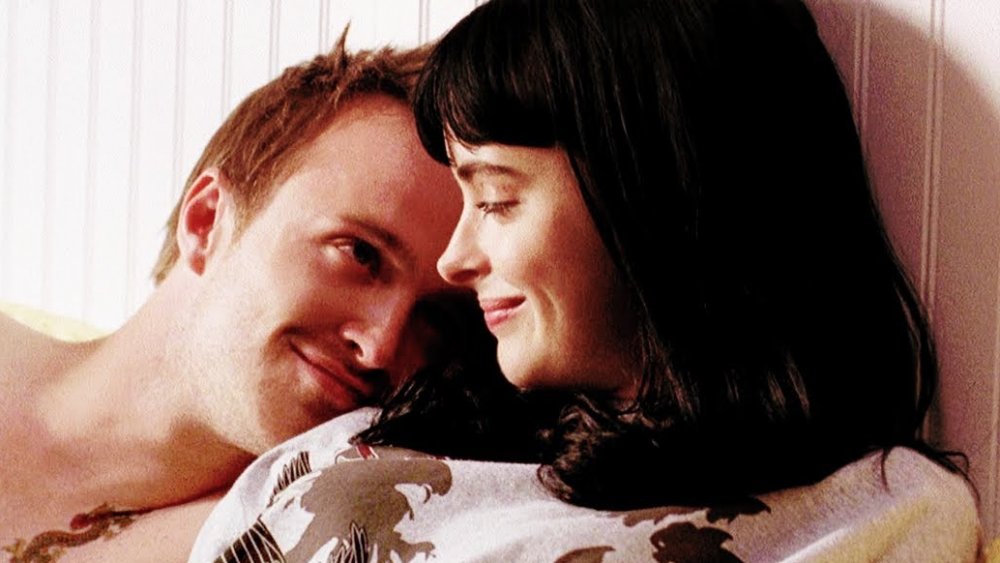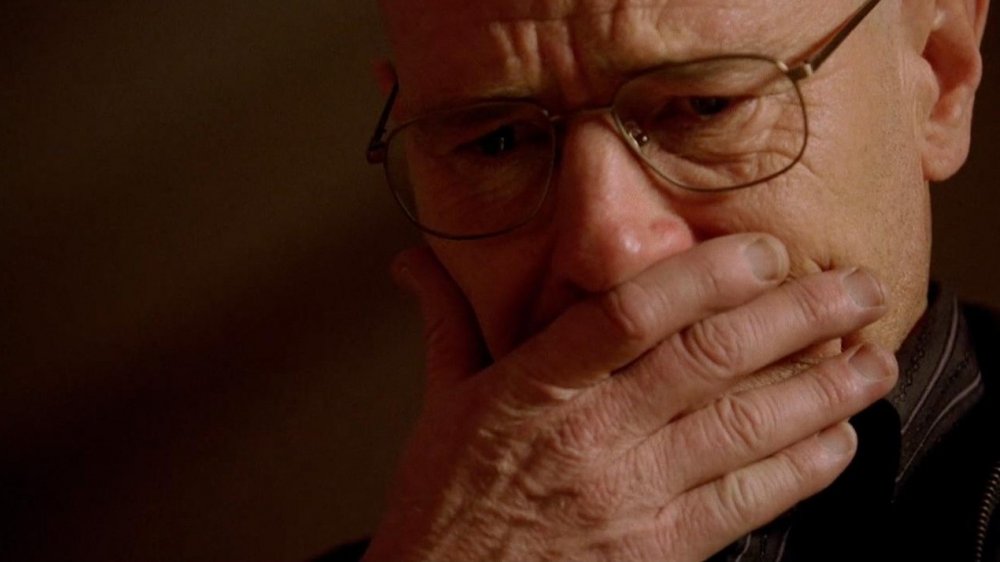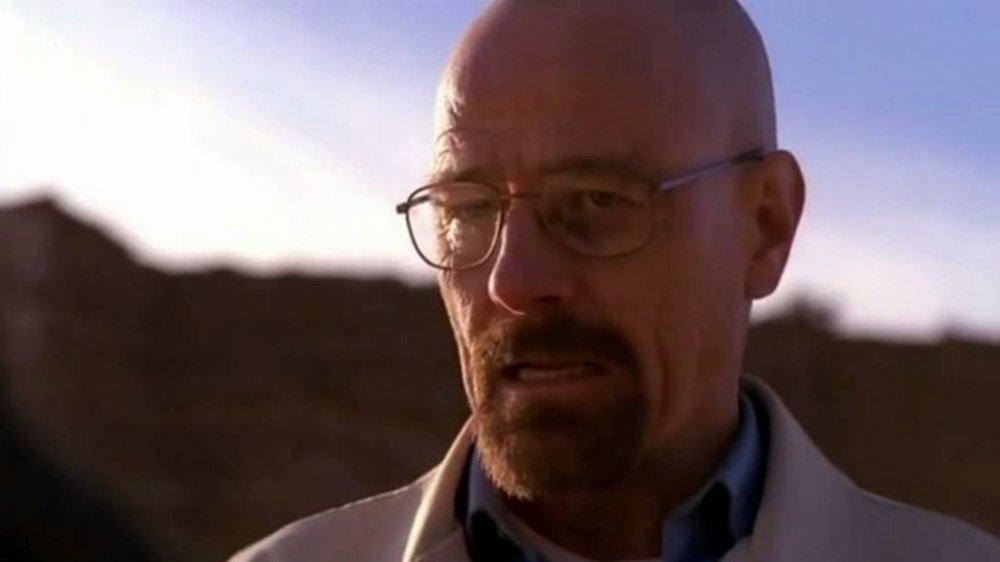Why Jane From Breaking Bad Had To Die
Breaking Bad never shied away from inventive and chilling ways to kill off characters. Over the show's five seasons, we witnessed brutal beatings, an in-air collision, a box-cutter to the throat, various explosive devices, numerous gunshots, and a crushing-by-ATM. It was one of the most subtle deaths, however, that provoked some of the strongest responses. In season 2's penultimate episode, Jesse's (Aaron Paul) girlfriend Jane (Krysten Ritter) chokes to death on her own vomit after taking heroin, while Walter White (Bryan Cranston) watches.
Jane wasn't exactly an innocent bystander, as she was the one who convinced Jesse to try heroin, and she wasn't averse to blackmailing Walt. The show's stark portrayal of her death and Walt's inaction, however, prompted capital-F Feelings among viewers, actors, crew, writers, and even the network. Creator Vince Gilligan said this was the only scene in the show's entire run that prompted a call from AMC, just to check the writers were sure they wanted to go there.
The one person who wasn't surprised was Ritter. She knew Jane was going to die when she signed up for the show (That said, the writers were known to change their minds about which characters to chop — that's the reason Jesse Pinkman wasn't killed off during Breaking Bad season 1). "I feel like, if you're going to go out, you should go out with a bang," Ritter said, although she admitted that shooting such an authentic death scene was tough. It was certainly memorable, and it laid out a lot of plot for the rest of the series. Here's why Jane from Breaking Bad had to die.
Walt was protecting Jesse — and himself
When people wonder why Breaking Bad killed off Jane, they're really asking why Walt let her die. Gilligan says he hopes everyone has their own theory, because the fun of putting a show into the world is that viewers interpret it in unique ways (Luckily for those who hate ambiguity, we finally understand the ending of Breaking Bad). He's also, however, shared his personal reasoning.
Firstly, Jane was a threat to Walt. Jesse's heroin addiction, which Walt blamed on Jane, had almost cost the meth-making pair a lucrative deal with Gus (Giancarlo Esposito). On an even more personal level, Jane had blackmailed Walt into paying Jesse his share of their money by threatening to reveal his double life. "I think it's self-preservation ... she threatened to expose him," Gilligan said.
Gilligan felt that was just a small fraction, however, of Walt's reasoning behind letting Jane die. "I think it was three-quarters saving Jesse," he said. He clarified this theory further in a Variety interview, crediting his girlfriend, Holly Rice, for the insight. "She said, 'Well he had to do it ... he loves Jesse, he doesn't love Jane ... Jesse is going to die from heroin sooner or later if something big doesn't change here.'"
Cranston also felt that Walt's reasoning came from concern for Jesse. He summarized Walt's mindset as, "She's a junkie, she's got Jesse on heroin, she'll kill him ... it's better if I don't do anything [to help]."
Jane's death marked a turning point for Walt
If you know the entire story of Breaking Bad, you know Jane's death had repercussions throughout the show. It gave Jesse a lot of emotions to work through in season 3, but it also marked a key moment in Walt's descent into true evil.
It's one thing to murder two people who would definitely kill you if they had the chance (RIP Emilio and Krazy-8). It's another to permit the death of someone who doesn't pose a physical threat to you, when you could easily do a very small thing to save her — especially when she's your pseudo-son's girlfriend. This marks one of the first times we see Walt grappling with his natural instincts versus his selfish, power-hungry impulses, and giving into the latter, with fatal consequences.
Walt's culpability in Jane's death also becomes an unspoken wedge between him and Jesse. It's telling that, at the moment when their relationship is the most fractured, when Walt turns Jesse over to the white supremacists, it's Jane's death that Walt throws in his ex-partner's face as the most hurtful thing of which he can think. Where he initially felt guilty, he's now proud of it, showing just how far he's spiraled since making that choice.
There are ramifications beyond Jesse and Walt. Jane's father, Donald (John de Lancie), an air traffic controller, is so grief-stricken that he deliberately allows two planes to crash in mid-air, killing hundreds of passengers. Jane's death was a sad scene but it also played up a major theme of a show that starts with a science teacher and ends in a meth lab run by white supremacists. One bad deed, however small, has ripple effects you can't predict until it's way too late.


